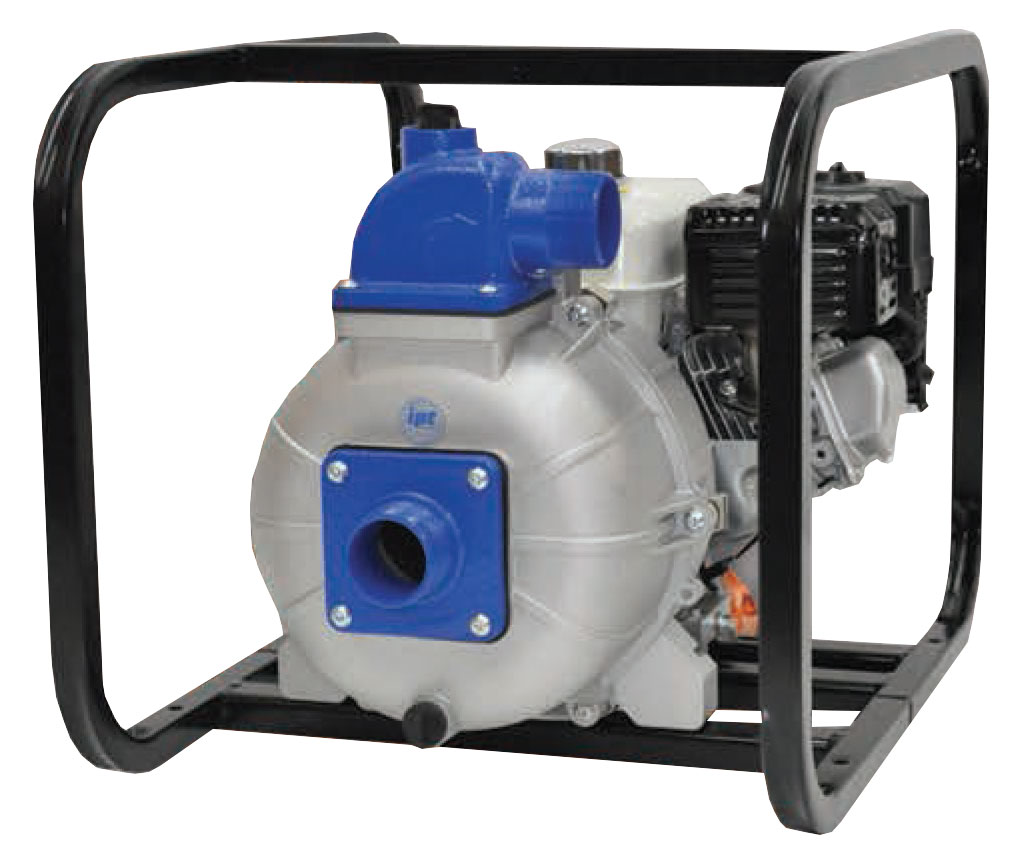Resourceful folks are always looking for ways to get the most out of their equipment. One way to do this is to repurpose tools whenever possible. One such tool is the trash pump. If you already have one and need to move fertilizer, it only makes sense to wonder, "Can I use my trash pump for fertilizer?".
The short answer is yes, in many cases, a trash pump can handle fertilizer. However, this is not always the case. Several factors affect a pump's ability to handle fertilizer, including the type of fertilizer, pump materials, horsepower, and more-all of which might impact the overall effectiveness and longevity of your trash pump.
Do not worry. In this article, we will explore not only whether repurposing a trash pump for fertilizer is a feasible option but also which situations make the most sense. We'll cover the basics of trash pumps, the properties of fertilizers, and how to know if your specific pump can handle the job.
What is a Trash Pump?

A trash pump is a type of centrifugal pump that is designed to move water that contains large pieces of debris, such as sand, gravel, sticks, etc. Generally, they are self-priming pumps that are constructed out of. Some are made from more durable metals like cast iron or ductile iron, while less expensive models are aluminum or other alloys.
Compared to other centrifugal pump types they are generally less efficient. This is because they are designed for versatility and not for efficiency. Most centrifugal pumps used for clear or "clean" fluids are more efficient because they have a smaller clearance between the impeller and the volute inside the pump housing.
Trash pumps have a smaller impeller diameter in relation to the volute size, which allows them to pass rocks or other debris more easily without scoring the internals of the pump. This capability makes them particularly useful in construction, agricultural, and dewatering/drainage scenarios.
Can Trash Pumps Handle Fertilizer?
Fertilizers come in various forms: liquid, granular, and soluble powder. Each type has different handling and application requirements. Liquid fertilizers are often preferred for their ease of application and rapid absorption by plants. However, they can be corrosive or abrasive, depending on their chemical composition, which can include nitrogen, phosphorus, potassium, and various micronutrients in different chemical forms.
The concept of using a trash pump for moving liquid fertilizer might seem viable. Trash pumps can handle slurries and fluids with solid particles, which theoretically could include liquid fertilizers. However, there are some things you need to consider, like material compatibility, efficiency, and reliability, before actually using your trash pump to transfer fertilizer.
Trash Pump Chemical Compatibility
Many trash pumps are designed to handle water and may not be compatible with the aggressive chemical nature of some fertilizers. Corrosion of the internal components, such as the impeller and the housing, can occur if the materials are not resistant to fertilizer chemicals.
Materials Typically Not Suited for Common Liquid Fertilizers:
- Aluminum
- Brass
- Polycarbonate
- PVC
Materials Recommended for Use with Liquid Fertilizer:
- Cast Iron
- Stainless Steel
- Viton
- Carbon Steel
- Polypropylene
In addition to pitting, rust, and corrosion of the housing and impeller, the pump seal can suffer damage from an aggressive fertilizer. Trash pumps typically have a mechanical shaft seal that keeps liquid from leaking out during operation. This seal consists of two faces and an elastomer that rub together to form a barrier.
If the seal faces or elastomers are made from a material not compatible with the type of fertilizer you want to pump, the seal will fail. Abrasive fertilizers cause damage to the seal faces and the pump will leak around the shaft. This can happen gradually or quite quickly if the fertilizer and materials are not compatible.
A fertilizer's with your pump materials might be the most crucial deciding factor for whether you can utilize a trash pump over another type of pump . If you are new to fertilizer transfer pumps, this guide explains in detail the different options for high-volume fertilizer transfer pumps.
Trash Pump Efficiency
Let's say your trash pump is constructed of materials that will stand up relatively well to whatever type of fertilizer you need to pump. Good, you can check off that consideration. However, there is still the matter of efficiency to consider. Trash pumps are by nature less efficient than other centrifugal pumps typically used for fertilizer transfer. You'll therefore want to ensure that your trash pump will actually perform as you need or you'll have to start at square one finding another solution.
As mentioned earlier, trash pumps generally have more clearance inside them to pass solid material. This makes them less efficient. (If you want to fully understand centrifugal pump efficiency, then check our You may be able to live with this lower efficiency, especially if it means not having to spend the extra money buying another more expensive pump.
Even so, just because a trash pump may work, doesn't mean it will move the liquid at the same volume as other pumps designed specifically for the transfer of fertilizers. It's crucial then, that the prospective costs of that lower efficiency be weighed out for both the short-term and long-term benefits of your operation.
Conclusion: Should You Use a Trash Pump for Fertilizer?
While trash pumps are a versatile option in a pinch, there are better pumps available for the efficient transfer of fertilizer. Over a season the additional amount of time it takes you to move fertilizer could impact your bottom line. Not to mention trash pump built with metals not suited for your specific fertilizer could fail prematurely, costing you additional time and money than if you had opted for another pumping solution in the first place.
Dultmeier carries several different pump lines that are well-equipped for fertilizer transfer:
For more details on which fertilizer pump will work best for you, check out our guide on the best fertilizer pump options

Tech Ag & Industrial Sales
Shane Blomendahl is a tech sales veteran at Dultmeier Sales with over 10+ years of experience in liquid handling products covering several industries and applications.












